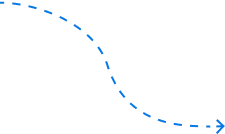- About the Module
Developed to ensure effective purchasing by managing supply processes, to support the orderly and efficient operation of your supply chain, and to reduce costs, the Purchasing Management module is a powerful tool that will enable you to facilitate your business processes.
Reduce your costs, optimize your supply chain.
Reduce your costs, optimize your supply chain.
The production management module offers businesses the opportunity to optimize production processes and increase efficiency. It saves time and cost by facilitating operations such as planning, tracking and performance analysis. It increases production capacity by using resources effectively and provides the ability to respond quickly and accurately to customer demands. It gives businesses a competitive advantage and increases profitability.
Supplier
Identify your suppliers to purchase from.

Purchase Request
Create a purchase request for the needed material/service.

Approximate Cost and Pricing
Estimate the approximate cost of purchase requisitions.

Purchase Offer
Collect quotes from your suppliers for your purchase requisition and decide the winner.

Goods Acceptance
Receive incoming materials based on purchase orders.

Invoice Technical Approval
Create a payment order for the Accounting department by giving technical approval to the incoming invoices of your needs whose purchasing process is completed.

Purchase order
Create a purchase order for the contract or quote and forward it to the supplier.

Purchase contract
Create a contract for the winning supplier of your choice.
Module Details
This module is a component of the Codelean ERP Enterprise product.
Below we have listed some features of the “purchasing management” module.
- Supplier management
- Material purchasing groups management
- Purchase requisition management
- Material approximate cost and pricing management
- Purchase offer management
- Purchase agreements
- Purchase orders
- Contract purchasing management
- Stock transfer (inter-facility/branch) purchasing management
- Return to supplier process
- Invoice technical approval
- Purchasing progress management
- Contract/Order penalty management
- Contract/Order work increase management
- Collateral/Advance/Deduction management
- What does it provide you?
Efficient Supplier Management
The warehouse module facilitates stock tracking by monitoring stock movements and provides access to real-time stock information.
Automated Processes
It saves time and labor by automating processes such as purchase requests, quotes, orders, goods acceptance and payment.
Cost Control
It reduces costs and improves budget control with price comparisons and the possibility of choosing the best offer.
Stock management
Optimizes inventory costs by tracking materials, monitoring stock levels and managing inventory.
Fast and Accurate Order Management
It accelerates business processes by quickly creating, tracking and approving orders.
Data Analysis and Reporting
It analyzes purchasing data, monitors performance and supports strategic decision-making with reports.
Supply Chain Monitoring
It increases the efficiency of the supply chain by monitoring supplier performance, stock levels and delivery processes.
Cost and Payment Control
Tracks invoices, monitors payment processes and manages costs effectively.
Collaboration and Communication
It provides a more efficient and coordinated working environment by improving cooperation and communication between departments.
- Info
Frequently Asked Questions
The purchasing module includes processes such as supplier management, purchase requests, quotation and pricing, order management, goods acceptance and control, invoicing and payment, stock management.
Supplier management is accomplished by identifying, evaluating and managing relationships with reliable and quality suppliers. Suppliers’ performance is monitored, agreements and contracts are managed
Users create purchase requests by entering them into the system, and the approval processes of the requests are managed automatically. Requests are communicated and monitored between departments.
Offers are received from suppliers, prices are compared and the most suitable offer is selected. The pricing process may also include negotiation and agreement making with the supplier.
Users can create, track and confirm orders through the purchasing module. Order status and delivery dates are tracked.
Verification, quality control and inventory updates of incoming materials are carried out. The goods acceptance process may include notification and return of damaged or missing products.
Invoices are tracked, payment processes are monitored and payments are made on time. Supplier invoices are managed integrated with the accounting system.
Stock levels are monitored, inventory is tracked and stock is automatically replenished. Stock movements are recorded and inventory reports are created.
The purchasing module provides performance metrics by analyzing data. Using reporting tools, purchasing data is presented in detailed reports.
Supplier performance is monitored and evaluated based on criteria such as supplier scoring, delivery performance, quality and service evaluations.
The purchasing module ensures information flow by sharing and integrating data with other ERP modules. It can work integrated with finance, inventory and production modules.
Purchasing module saves labor by automating processes, reduces errors and increases efficiency by accelerating business processes
The purchasing module can be used in any industry that wants to manage the procurement processes of small, medium and large-sized businesses.
The ERP purchasing module can be customized according to the needs of businesses and adapted to fit existing processes.
The implementation process includes requirements analysis, configuration, data migration, training and testing stages. It is managed by a professional ERP consultant.
Are you ready to take your business to the next level?
Let’s organize a meeting right away and learn how you can take your business to the next level with our business analysts and engineers.